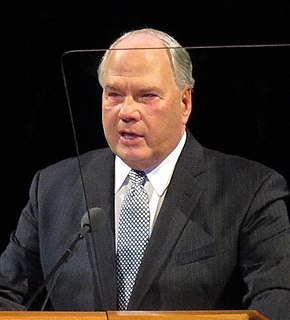A Quote by Pascal Bruckner
By the duty to be happy, I thus refer to the ideology... that urges us to evaluate everything in terms of pleasure and displeasure...on the one hand, we have to make the most of our lives; on the other, we have to be sorry and punish ourselves if we don't succeed in doing so. This is a perversion of a very beautiful idea: that everyone has a right to control his own destiny and to improve his life.
Related Quotes
The child begins life as a pleasure-seeking animal; his infantile personality is organized around his own appetites and his own body. In the course of his rearing the goal of exclusive pleasure seeking must be modified drastically, the fundamental urges must be subject to the dictates of conscience and society, urges must be capable of postponement and in some instances of renunciation completely.
Man is a spiritual being, a soul, and at some period of his life everyone is possessed with an irresistible desire to know his relationship to the Infinite. . . . There is something within him which urges him to rise above himself, to control his environment, to master the body and all things physical and live in a higher and more beautiful world.
Once we begin to feel deeply all the aspects of our lives, we begin to demand from ourselves and from our life-pursuits that they feel in accordance with that joy which we know ourselves to be capable of. Our erotic knowledge empowers us, becomes a lens through which we scrutinize all aspects of our existence, forcing us to evaluate those aspects honestly in terms of their relative meaning within our lives. . . .
Urges ... every man has urges. But the true measure of man is to admit them, to learn to control them. The Shield used to refer to themselves as the most dominant force in our universe. But that ain't the way I remember it. They fell victim to the faults of men. Their lust and greed and valor for glory, it led them right down in the pit, where they belong. Tonight, they'll burn for it. For I am no man. I am reborn. Our bond can never be broken, and our urges can never be satisfied.
There are two kinds of happiness - the temporary pleasure derived primarily from material comfort alone and another more enduring comfort that results from the thorough transformation and development of the mind. We can see in our own lives that the latter form of happiness is superior because when our mental state is calm and happy, we can easily put up with minor pains and physical discomforts. On the other hand, when our mind is restless and upset, the most comfortable physical facilities do not make us happy.
Though our brother is upon the rack, as long as we ourselves are at ease, our senses will never inform us of what he suffers. They never did and never can carry us beyond our own persons, and it is by the imagination only that we form any conception of what are his sensations...His agonies, when they are thus brought home to ourselves, when we have this adopted and made them our own, begin at last to affect us, and we then tremble and shudder at the thought of what he feels.
I think I'm still just as conflicted about the war as I always was. On the one hand, I was a soldier carrying out his duty, following his allegiance to his country and to the mission at hand. But yet, there was always this unease plaguing me. "What are we doing here?" "Are we really fixing this country or are we doing more harm than good?" And the most pressing question: "How do we pull ourselves out of this quicksand?" I think I'm still there in that white space you mentioned, trying to get clarity for myself on what this war did to us as a nation.
Being thus prepared for us in all ways, and made beautiful, and good for food, and for building, and for instruments of our hands, this race of plants, deserving boundless affection and admiration from us, becomes, in proportion to their obtaining it, a nearly perfect test of our being in right temper of mind and way of life; so that no one can be far wrong in either who loves trees enough, and everyone is assuredly wrong in both who does not love them, if his life has brought them in his way.
By a beautiful paradox of Divine love, God makes His Cross the very means of our salvation and our life. We have slain Him; we have nailed Him there and crucified Him; but the Love in His eternal heart could not be extinguished. He willed to give us the very life we slew; to give us the very Food we destroyed; to nourish us with the very Bread we buried, and the very Blood we poured forth. He made our very crime into a happy fault; He turned a Crucifixion into a Redemption; a Consecration into a Communion; a death into Life Everlasting
Realize that illness and other temporal setbacks often come to us from the hand of God our Lord, and are sent to help us know ourselves better, to free ourselves of the love of created things, and to reflect on the brevity of this life and, thus, to prepare ourselves for the life which is without end.
“When ye are in the service of your fellow beings ye are only in the service of your God.” Focusing on serving our brothers and sisters can guide us to make divine decisions in our daily lives and prepares us to value and love what the Lord loves. In so doing, we witness by our very lives that we are His disciples. When we are engaged in His work, we feel His Spirit with us. We grow in testimony, faith, trust, and love.





































